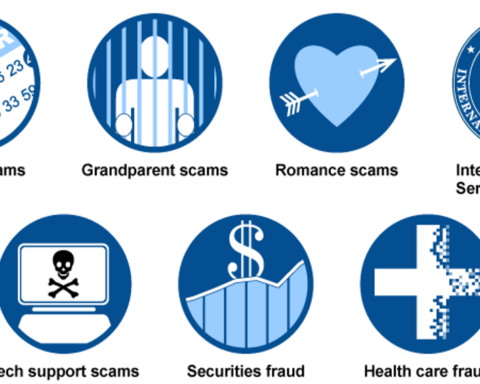By Jack Rooney Sentinel Staff Jul 13, 2020 Updated Jul 14, 2020
It started as a normal shipping transaction Friday afternoon.
A woman in her 80s came to the Shipping Shack on Emerald Street in Keene around 4:30 p.m. to overnight a package, Brenda Beaulieu, the store’s co-owner, said.
Then Beaulieu asked the woman what she was sending.
“You always have to ask what the contents of the package are. Whether they tell you or not is something different. Most of the time they just say [it’s a] gift, or whatever,” Beaulieu said. “But she actually came out and said, ‘cash.’ ”
Specifically, the woman, a Keene resident, was trying to send $19,000 in cash to someone in Milwaukee, Keene police Lt. Steven Tenney said Monday. The woman had gotten a phone call claiming her Social Security number had been stolen, and that she needed to send the money to get a new number and card.
Beaulieu became suspicious, and warned the woman that this could be a scam, but Beaulieu said she insisted on sending the package. That’s when Beaulieu alerted her husband and store co-owner, Bryant, to the situation. He took the package to the Keene Police Department, where officers confirmed that the woman had been targeted for fraud.
An officer called back the number that had initially contacted the woman. When the officer identified himself, the man on the other end of the phone, who claimed to be from the Social Security Administration, hung up and deactivated the phone number, Tenney said.
“It was lucky someone was paying attention,” Tenney said. “Often, that money just disappears.”
In this case, though, police were able to return all of the money to the woman, Tenney added.
“I’m elated that they got her her money back,” Brenda Beaulieu said. “If that [package] had gone out, and he actually received it, there’s no getting it back. She’s lost it forever. And this is a woman that’s in her 80s and is probably living off of this money for the rest of her life.”
Shipping Shack has seen scams like these before, Bryant Beaulieu said.
“This is not the first time,” he said. “My wife has intervened on several occasions and kept people from losing a lot of money.”
The Beaulieus have owned Shipping Shack for more than 11 years. The store ships through several companies, including FedEx, UPS and the U.S. Postal Service, and offers services such as mailbox rentals and package receiving.
Brenda Beaulieu said the store has prevented five or six fraud cases in the past few years.
“There’s quite a few scams out there,” she said. “I’m happy we can catch some of them, but there’s a lot more out there that we don’t know about.”
Common scams can involve unsolicited phone calls or emails from people claiming to be from the government, or a debt collection agency, demanding personal information and/or immediate payment.
Senior citizens can be particularly vulnerable to fraud, and millions of older Americans fall victim to financial scams each year, costing them more than $3 billion annually, according to the FBI.
From 2013 to 2017, U.S. financial institutions reported more than 180,000 cases of suspicious activities targeting seniors for more than $6 billion, according to a report last year from the Consumer Financial Protection Bureau. But these cases “likely represent a tiny fraction of actual incidents of elder financial exploitation,” that report notes.
Older people may be less likely to report fraud because they don’t know how, or are ashamed to admit they have been scammed and worried that family members will lose confidence in their ability to handle their own affairs, according to the FBI.
The COVID-19 pandemic has led to a new wave of scams, according to the CFPB, with some seeking to take advantage of the federal stimulus checks that were part of an initial economic relief package. Regardless of the context of the potential fraud, though, expert advice remains the same: Never give out personal information over the phone or online.
“No one’s going to call you on the phone and tell you to send money,” Tenney said.
And, Brenda Beaulieu added, if a request from an unknown person on the phone or online seems suspicious, ask someone else about it.
“If it looks funny, ask somebody about it first,” she said. “If there’s any hint in your head, in your mind, that it doesn’t look right, ask. And never give out your personal information.”
Sentinel staff writer Mia Summerson contributed to this story.
Jack Rooney can be reached at 352-1234, extension 1404, or [email protected]. Follow him on Twitter @RooneyReports.








